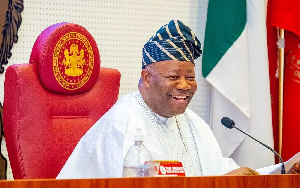Muda Yusuf, the chief executive officer of the Centre for the Promotion of Private Enterprise, has expressed concerns about continuous changes in exchange rates for import duties in the country.
Since the Central Bank of Nigeria (CBN) adopted the floating exchange rate system in June, the Nigeria Customs Service (NCS) has reviewed the import duty exchange rate four times.
On June 24, 2023, the Nigeria customs adjusted the exchange rate from N422.30 to N589 per dollar.
Another adjustment was made on July 6, 2023, to N770.88 to a dollar, and again on November 14, it was re-adjusted to N783.174. Legit.ng reports that the current import duty exchange rate is N951.941 against a dollar.
Muda Yusuf worries exchange rate will affect business
Reacting to the exchange rate changes, Yusuf, in a statement made available to Legit.ng on Sunday, December 10, 2023, said the move would worsen the already prohibitive production and operating costs for businesses in the country.
He also stressed that it will impact the cost of all imports, including raw materials for manufacturers, pharmaceutical products, machinery, energy products, petroleum products and many more.
His words: “The recent decision by the Central Bank of Nigeria to increase the customs exchange rate from N783 to N952 per dollar would inflict more pain on the citizens, erode profit margins, reduce purchasing power and put the survival of businesses at an elevated risk.
“The frequent changes in rates are also creating serious issues of uncertainty for investors and making the international trade process increasingly unpredictable.
“Already, businesses are contending with an incredibly difficult operating environment arising from severe macroeconomic headwinds.
“The persistent currency depreciation is making access to intermediate products very difficult for manufacturers, energy cost remains very high, purchasing power is weak, investors confidence is declining and consumer confidence is on the downward trend”
Speaking further, the CPPE boss warned that the import duty increase would make the importation cost through official channels even more prohibitive, which may result in unintended outcomes—punch reports.
He noted: “ There will be greater incentives for smuggling; more industries that are dependent on the imported raw materials may shut down.
“Customs revenue may decline as imports through official channels become difficult; worsening an already bad inflation situation; worsening an already bad poverty situation and the welfare conditions of the citizens; heightened corruption vulnerabilities in the international trade ecosystem and Increase in the influx of substandard products amid high and increasing cost of products.”
Mudu Yusuf further asked the CBN and the Coordinating Minister of the Economy to reconsider the price raise.
He added: “The CBN should allow for a concessionary rate for the computation of import duty to protect the economy and the citizens from the reality of unbearable inflationary pressures.
“We propose that going forward, CBN should fix the customs duty rate at 20 per cent less than the official exchange rate in the light of the prevailing harsh economic conditions."
Business News of Monday, 11 December 2023
Source: www.legit.ng













